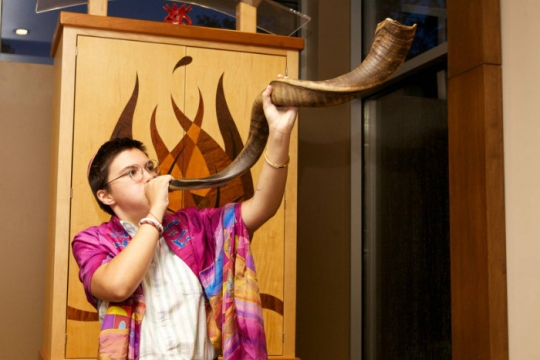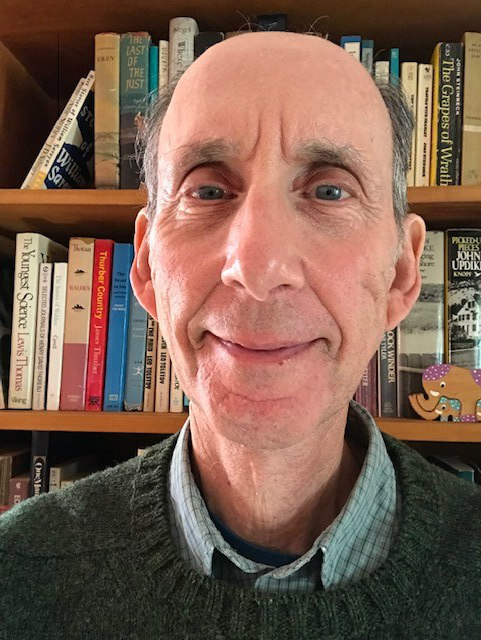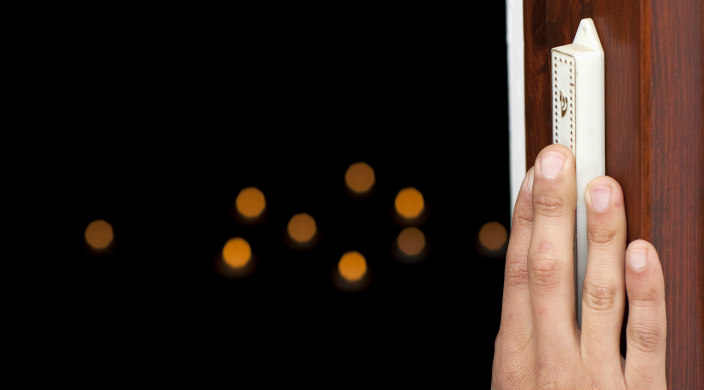
Until a few months ago, I felt safe whenever I stepped into our temple.
But then the massacre at Pittsburgh’s Tree of Life Congregation occurred, and the next Saturday when we held Shabbat morning worship services and Torah study in the library, I was asked to guard our temple’s front door.
As the service began, I stood at the open doorway to welcome latecomers. A fresh breeze blew off the Gulf. The sun was shining. I watched cars speeding by. For the first time in my life, though, I wondered who would offer a friendly wave and who might drive into the temple’s parking lot and open fire with a semi-automatic rifle.
The library is located only a few feet from the front door, so I could hear voices chanting familiar prayers. It was the kind of Shabbat morning that I’ve always loved, a morning that brought a sense of peace into the world. Yet as I stood in the doorway admiring the mezuzah with God’s name affixed to the doorpost, I felt afraid.
I worried what might happen one day in our temple to people who I’ve come to know and love, just as it happened one day in Pittsburgh, and as it happened in Christchurch, New Zealand, and in Columbia, S.C., and in Quebec City, Canada, and in other cities and towns in the United States and around the world.
I thought about how the fabric of our nation is being torn apart, changing in ways that I don’t understand and never saw coming as a boy growing up in New Jersey. My father, who grew up with anti-Semitism in the 1920s and 1930s and saw from afar in the 1940s the horrors of the Holocaust, warned me through his own silence not to let anyone know I was a Jew.
Back then, as a boy growing up in the 1950s and 1960s, I was frightened of revealing my Jewish identity. But in the 1970s and 1980s, as I studied Holocaust literature in college, and as more and more people began exploring their roots and taking pride in their heritage, I began to share more and more of my Jewish identity.
This was America, after all, a country that had been created as a haven for those suffering religious persecution. It was a country where anyone – Jew, Muslim, Christian, or anyone holding a different belief – could pray freely without fear of persecution or harm. That was my vision of America, at any rate, and I had thought that, by the turn of the century, racism and anti-Semitism would have become nothing more than memories, part of history.
But today? Today, I feel like I’m living in a different America, inhabiting a different world, and I imagine many Muslims and Jews – as well as some Christians and those of other religions – are thinking, like me, about hiding their religious identities, much as I hid my Jewish identity when I was a boy. I don’t want to hide, but sometimes I think that perhaps it’s the only way of staying safe these days.
Thoughts like these passed through my mind that Shabbat morning, while I waited to welcome latecomers. When no one else appeared after 15 minutes, I locked the front door and joined the worshippers in the library.
A few moments later, though, I heard a loud, insistent knocking and opened the door again. Unable to see who was there without a peephole, I hesitated for a moment, worried someone with a gun might be waiting on the other side. I opened the door a crack; it turned out to be a temple member waiting for me to let him in. I stepped aside, relieved that he was friend not foe.
When Torah study ended, the rabbi reached out a hand to thank me for guarding the door. Instead of sharing my fears, I told him that standing in the open doorway and hearing the voices in prayer had reminded me that God’s presence could be found anywhere – inside the temple, in the parking lot, in every car passing by – and not just in the library. But even as I shared these thoughts with him, I realized that such thoughts wouldn’t have helped me if someone had stormed the entranceway that morning with a gun.
I think about the people in Christchurch and Pittsburgh and Charleston, where doors like the one at our temple were opened to welcome the stranger. They invited anyone in need into a world of prayer, into a world of gentleness and respect for all living creatures, into a world of love – a world where different people with different beliefs can gather for prayer without fear of persecution or harm.
That’s the world I still believe in and want to help create, but I wonder if it’s still possible.
After Shabbat, I emailed a friend, a policeman in Pittsburgh whose station house is only a few blocks from Tree of Life Congregation. I told him how I felt guarding our temple’s door that morning, and within minutes, he wrote back: “Get a peephole!”
I understand what he’s saying. I recognize the need to be vigilant, and I understand the danger of not being vigilant. But I also wish the temple didn’t need a peephole or surveillance cameras. I wish the door could remain open to everyone.
Eventually, I’m told, the temple will install a camera for protection. For now, though, our front door remains as it’s always been – open to all.
For a little while longer, anyway.
Related Posts
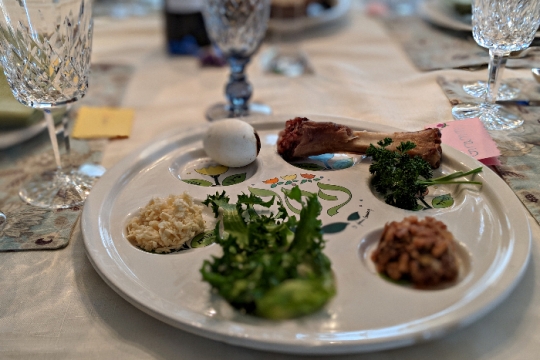
Pandemic Passover, Take Two: The Long Journey through the Wilderness
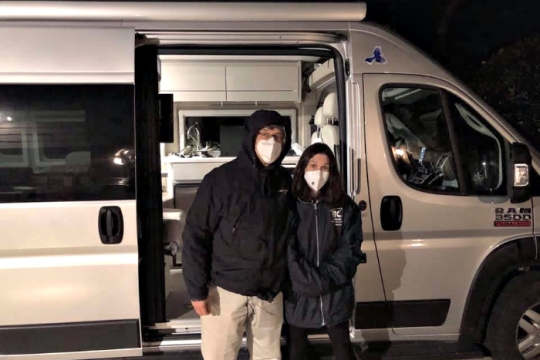
"Tour to the Wonderful": This Couple Drove Across America to Join Multiple Reform Synagogues
